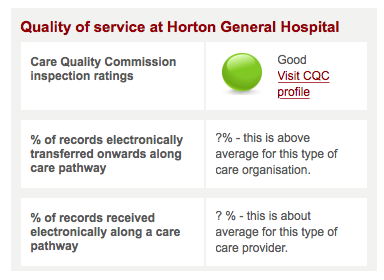Will this week’s flawed data grab by DWP be the portent of things to come? (We’ll post something on this in our next newsletter; but if you’re deeply concerned, your consent choice will be honoured).
The forthcoming digital economy legislation is intended to define how George Osborne and this Government wish to heed Martha Lane Fox’s call to “make Britain brilliant at the Internet”, for everyone. But, those with a wish to be brilliant at using the Internet against people are also rubbing their hands with glee. How this affects medical records, and more, is currently unknown until the consultation.
The NHS apps store, with its panoply of catastrophes was shut down, but silently in a way that they hoped no one would notice. Including any victims. Children’s school records continue to be linked and sold, including to newspapers. Will the sale of pupil records continue in secret? Our concerns about Public Health England grow every time they open their mouths. I haven’t seen data governance this conceited since Tim Kelsey assured the listeners of Radio 4 that there had been no data breaches, and then care.data collapsed with data breaches up to your ears. HSCIC argues it has reformed; PHE still believes that it didn’t need to.
On a positive note, the legislation will be a convenient way to implement any legislative changes required from Dame Fiona Caldicott’s forthcoming consent review, after they have been consulted on. We hope that the Department of Health and all its constituent bodies will accept the principle that in order for people to trust how their medical records are been used, it is necessary for each patient to know every way that their individual level records have been used. Like a bank statement, it’s there for whenever you wish to look, and if things are unaccounted for, you have the information to ask questions.
But the legislation will be much wider than just medical data governance.
While medical records are my day job’s primary concern, there are many other records held by Government and business that are traded in ways as shady, or more so, than what was shown with care.data 2 years ago. What will the legislation do there?
The failed leadership at the Government’s “digital catapult” wants you to be subject to “the UK’s data sharing movement”; will that be following pharmacy2u’s lead in predating on the public in their dark shadows? Is this really how BIS wishes grantees to spend its budget?
The other approach is transparency to citizens of how individual level data about them is used and stored. When a citizen has the option of knowing how data about them has been used, the temptation for secret dodgy deals is far reduced. Of course, there’s less money in that for people whose usual approach is to scam the elderly out of their life savings.
Concerns are not just health, and it’s not just Government.
Which way the Government intends to go will be defined by the legislation. Does this Government want to be secretive and invasive, or will it commit to requiring transparency and consent? Will it do things to citizens and patients, or will it work for citizens and patients?
Where Health or Government lead, enlightened charities businesses can choose to follow and will gain a competitive advantage from doing so. Organisations that wish to act ethically currently have no business or operational incentive to do so, those who consider their customers as potential victims have no incentive not to. (If you’re interested in our demonstrator of this for your business or organisation, please get in touch).
Trust in data increases when transparency to individuals of their own data includes those dark corners – Data usage reporting is good for everyone.

 Created automatically off care provider systems, this should give a measure of how widely EHR transfer is used, rather than how often it could be used.
Created automatically off care provider systems, this should give a measure of how widely EHR transfer is used, rather than how often it could be used.